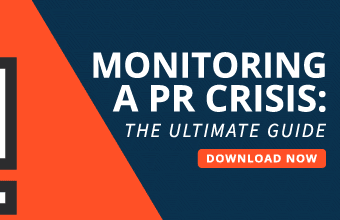Just as consumers are struggling in these unprecedented times, brands are also feeling their way through the COVID crisis with no strategic template or lessons-learned examples to guide them. But they know it’s important to stay connected with their audiences now more than ever, but many don’t know where to begin.
New research from PR and marketing firm Mower reveals two hopeful facts for brands and businesses weighing the risks and opportunities of marketing during a global pandemic: 1) consumers still want to hear from brands, and 2) more Americans than not believe advertisers should carry on as normal. The crucial question is, what messages should brands communicate—and how?

Drawing from historic research and literature on past pandemics and recessions, and examining what we have already learned from the coronavirus threat, Beth Egan, associate professor at Syracuse University’s S.I. Newhouse School of Public Communications, partnered with the Mower Insight Group to develop best practices for marketers. Compiled in a new white paper, How Brands Should Respond During the COVID-19 Crisis, these best practices address three critical areas of concern:

“Consumers are quickly reacting to brands that are seen to be taking advantage of the situation and calling them out on social media. One of the more recent targets is McDonald’s in Brazil, which decided to separate its iconic arches to represent social distancing,” according to the report. “Social media instantly reacted, citing poor treatment of their workers, who are considered essential employees. Even Bernie Sanders chimed in, calling for paid sick leave for their workers.”

Some brands are using a bit more tact. “Hotels.com, a brand in one of the hardest hit categories, took the opportunity to support the idea of social distancing with their Capt. Obvious spokesperson and received a 97 percent positive sentiment score, according to iSpot.tv,” the report says.

Marketers have long adopted a consumer-centric approach to their strategies, but amid a crisis it is more important than ever to be mindful of people’s mindsets—more so than their wants and needs. Messaging needs to set the right tone and communicate something meaningful in relation to the events.
4 key messaging formats that content analysis reveals are working:

A few of the lessons from history the paper reveals:
- Increasing advertising spending during a recession has a positive impact on both ROI and market share. (Advertising During a Recession,” a 1999 study by J. Walter Thompson’s Stephen King)
- A consumer packaged goods brand that stops advertising loses half of its brand awareness in just 2.5 weeks. (Simon Broadbent, late 1970s)
- Consumers respond positively to advertising in times of crisis, with the exception of those with messaging that they perceive to exploit the situation for commercial gain. (Post-9/11 research from Hofstra and Pace universities)








